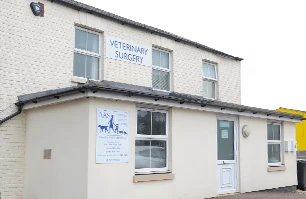Kidney failure is a common health problem in middle-aged and elderly cats.
A gradual reduction in the ability of the kidneys to do their job is an inevitable part of the ageing process and occurs at varying rates in different animals. The damage is irreversible and will eventually be fatal. Your cat may still have many months of good quality life after diagnosis of kidney disease if receives effective treatment and you co-operate with your vet.
Causes of kidney damage
Chronic kidney disease is often a result of a normal aging process and is due to degeneration of kidney cells that filter natural waste from the body. Other causes may include inherited defects, bacterial infections, viral diseases like Feline Leukaemia or Feline Infectious Peritonitis, poisoning and cancer.
Sudden or acute kidney failure can also occur as a result of poisoning, bacterial and viral infections, blockage of the tubes leading from the kidneys to the bladder or heart disease.
These cases need emergency care and even if successfully treated by your vet, your cat may still suffer long term kidney damage.
Symptoms
(seen when about three-quarters of the kidney cells have stopped working)
- Increased thirst
- Urinating more frequently (dilute urine)
- Depression
- Loss of appetite
- Vomiting
- Weight loss
- Dull unkempt coat
- Bad breath and ulcers in the mouth
Confirming a diagnosis
Many of these symptoms also occur in other diseases such as diabetes. Your vet will want to test samples of blood or urine to check kidney function and may suggest diagnostic imaging to look for structural changes affecting the kidneys.
Treatment
Although damaged kidneys cannot be repaired there is much that can be done to make your cat feel better. Many cats will be severely dehydrated. Your vet will want to give extra fluids to counter this. Medication may be given to treat the secondary effects of the disease such as mouth and stomach ulcers. Anaemia is a common problem in cats with advanced disease and in some cats, this may be treated. Cats with kidney disease are prone to urinary tract infections which will be treated with antibiotics.
Diet
Special diets available from your vet which reduce the waste products in the blood. They also have extra amounts of some vitamins and minerals.
It may help if you warm up the food to stimulate your cat's sense of smell and appetite. Always make sure your cat has plenty of fresh, clean water at all times, allowing your cat to go thirsty will make the problem rapidly worse.
Life expectancy
If the damage to the kidneys is related to ageing your cat may live for several years after diagnosis. As with other diseases, if you can keep your cat comfortable there is a good chance that it will survive for many months. Your cat will need regular check-ups by your vet and possibly changes to its medication. By weighing your cat often, watching its behaviour and checking how much food and water it consumes, you will be able to provide your vet with valuable information which help to control the disease.








